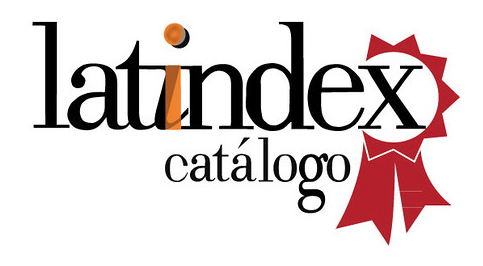Role of employers in the process of Civil Engineering curriculum development: A case in Poland = El papel de los empleadores en el desarrollo curricular de los Ingenieros Civiles: Un caso en Polonia
DOI: https://doi.org/10.20868/abe.2017.1.3512
Texto completo:
PDF (English)Resumen
Resumen
Las últimas enmiendas a la Ley de Educación Superior en Polonia han reforzado el papel y la importancia de la cooperación entre las universidades y el entorno socioeconómico. La idea de la elaboración de un currículo basado en los resultados del aprendizaje, debe facilitar la cooperación entre las universidades y los socios externos (empleadores, representantes de organizaciones profesionales, etc.) en el proceso de desarrollo de la oferta educativa. Los empresarios esperan que los graduados tengan un alto nivel de competencia que sea una síntesis de conocimientos teóricos, habilidades prácticas y rasgos personales. En su opinión, el papel del sistema educativo debe ser preparar a los graduados de manera práctica para la profesión y proporcionarles una amplia gama de habilidades profesionales. La debilidad más frecuentemente de los graduados universitarios es la falta de experiencia y de habilidades prácticas. En un principio, la participación de los empleadores en el diseño curricular fue simbólica, quizá por falta de interés, o por la necesidad de graduados con habilidades específicas para determinadas posiciones en la empresa. La participación de los empleadores en el diseño curricular y la evaluación de su calidad ha aumentado desde que los representantes de los éstos fueron incluidos en los comités de evaluación externa. Las formas más eficaces de participación de los empleadores en la creación de los planes de estudio fueron discutidas sobre la base de la ingeniería civil en la Universidad Técnica y se han desarrollado como estudios duales, estudios de posgrado comunes, pasantías, viajes técnicos, conferencias específicas, etc. Los empleadores están tomando cada vez mayor conciencia de la necesidad de su participación. Sin embargo, todavía es necesario buscar mecanismos y métodos de consulta que realmente involucren a los empleadores en la cooperación y, al mismo tiempo, no generen problemas burocráticos
Abstract
The latest amendments to the Law on Higher Education strengthened the role and importance of cooperation between the universities and socio-economic environment. The idea of curriculum based on learning outcomes should facilitate cooperation of universities with external stakeholders (e.g. employers, representatives of professional organizations) in the process of educational offer development. The employers expect graduates to have a high level of competence that are a synthesis of theoretical knowledge, practical skills and personal features. In their opinion, the role of the education system is to prepare graduates practically for the profession and to provide them with a wide array of professional skills. Most frequently mentioned weakness of university graduates is the lack of experience and practical skills. Initially, the participation of employers in curriculum design was symbolic. It was the result of lack of interest or the requirement for graduates for very specific skills needed for a given position in the company. The participation of employers in the curriculum design and evaluation of its quality has increased since the representatives of employers were included in the external evaluation committees. The most effective forms of employers' participation in creating a curriculum of study e.g. dual study, common post-graduate study, internships, technical trips, dedicated lectures etc. were discussed on the basis of civil engineering in technical university. The participation of employers is increasingly more conscious. However, there is still a need to seek mechanisms and methods for consulting that would really involve employers into cooperation, and at the same time would not generate more red tape on any side.
Palabras clave
Referencias
Act of 24 of July 2014 Law on Higher Education. Official Journal of Laws of 2014, item 1198.
Barker, P. (2004). Technology in support of learning. In C. Baillie, & I. Moore (Eds.), Effective Learning and Teaching in Engineering (pp. 122-138). London: RoutledgeFalmer.
Becerik-Gerber B, Gerber D J, Ku K (2011). The pace of technological innovation in architecture, engineering, and construction education: integrating recent trends into the curricula, ITcon Vol. 16, pg. 411-432.
Blackmore, P., & Kandiko, C. (2012). Strategic curriculum change: global trends in universities. (n/a ed.) Abingdon: Routledge/SRHE..
Gavin, K. (2011) Case study of a project- based learning course in civil engineering design. European Journal of Engineering Education, 36 (6). pp. 547-558. ISSN 03043797 (ISSN).http://dx.doi.org/10.1080/03043797.2011.624173
Gott R., Duggan S. (1996) "Practical work: its role in the understanding of evidence in science", International Journal of Science Education, vol. 18, pp. 791-806, 1996. http://dx.doi.org/10.1080/0950069960180705
Kosior-Kazberuk M. (2016) "Analysis of factors influencing the curriculum design in technical universities", Proceedings of ICERI2016 Conference, 14th-16th November 2016, Seville, Spain, pp. 6680-6687.
https://doi.org/10.21125/iceri.2016.0529
Lang J.D., Cruse S., McVey F.D., McMasters J. (1999) "Industry expectations of new engineers: A survey to assist curriculum designers", Journal of Engineering Education, vol. 88, pp. 43-51. DOI: 10.1002/j.2168- 9830.1999.tb00410.x
Nation I.S.P., Macalister J., "Language curriculum design", 242 p. Taylor & Francis,
New York, 2010. ISBN-13: 978-0415806060
Reports of Polish Accreditation Committee for years 2012-2015, Publishing House ASPRA-JR, Warszawa, 2016 (in Polish).
Research Report fate of graduates elaborated by Career Office of Bialystok University of Technology, 2014-15 (unpublished).
Soare E. (2015) “Perspectives on designing the competence based curriculum”, Procedia - Social and Behavioral Sciences, vol. Volume 180, 5 May 2015, Pages 972-977, https://doi.org/10.1016/j.sbspro.2015.02.259
Salmisto A., Nokelainen P. (2015) ”Knowledge creation and innovation in a civil engineering course for the first-year university students”, European Journal of Engineering Education, vol. 40, pp. 506-521.
http://dx.doi.org/10.1080/03043797.2014.96051 0
Sjoer, E, Nørgaard, B & Goossens, M (2016) 'From concept to reality in implementing the Knowledge Triangle' European Journal of Engineering Education, vol 41, no. 3, pp. 353-
DOI: 10.1080/03043797.2015.1079812.
Yorke M. (2004) "Employability in the Undergraduate Curriculum: some student perspectives", European Journal of Engineering Education, vol. 41, pp. 409–427, 2004. DOI: 10.1111/j.146
Enlaces refback
- No hay ningún enlace refback.
Copyright (c) 2021 Autor / BY-NC-ND

Este obra está bajo una licencia de Creative Commons Reconocimiento-NoComercial-SinObraDerivada 4.0 Internacional.













